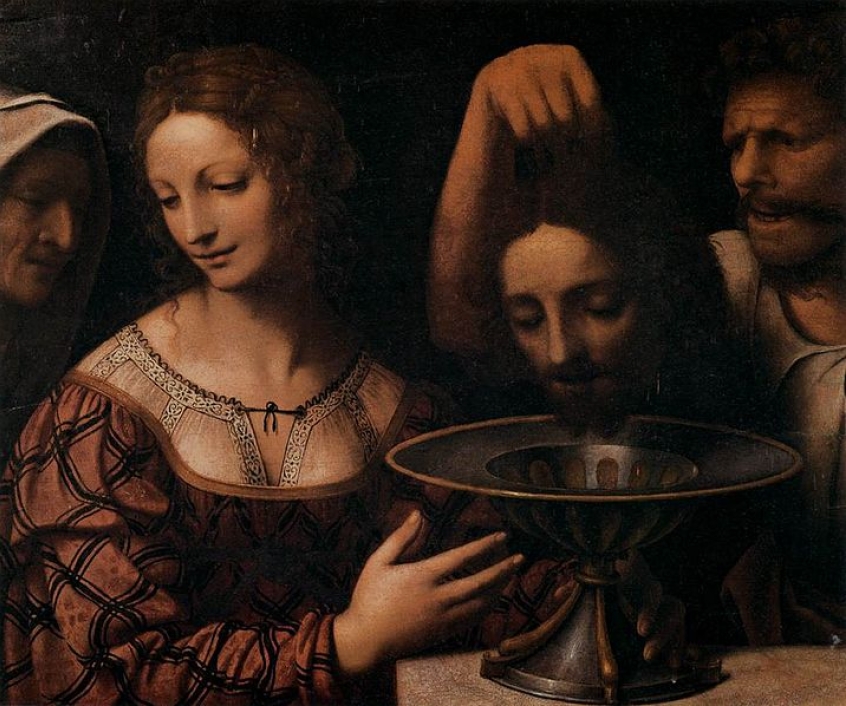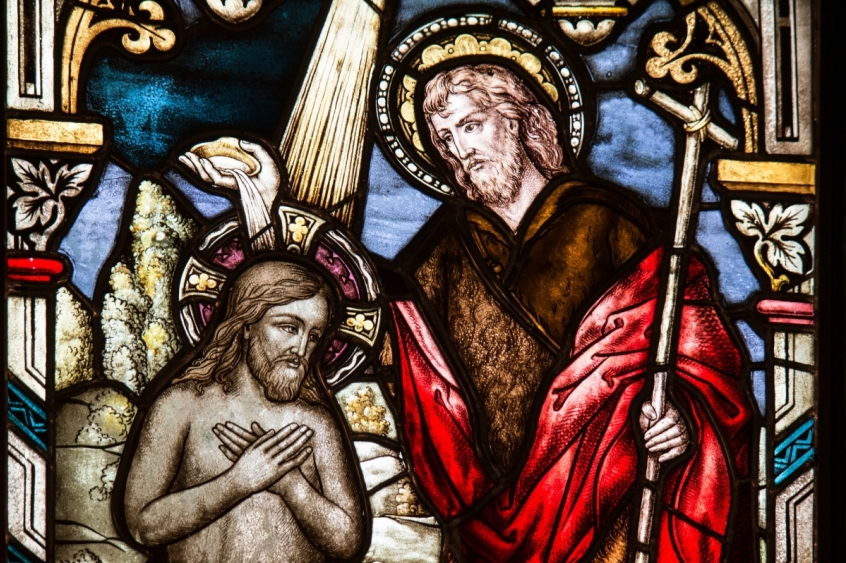
Birthday parties can be difficult affairs. If you don't agree, just ask John the Baptist.
The story of Salome is a the tragic tale of a king's favour that cost John the Baptist his life.
This strange story comes early on, and somewhat unexpectedly, in Mark's Gospel (6: 21-29). Unusually, Jesus does not feature in the story at all. King Herod Antipas had married Herodias, formerly his own brother's wife. John the Baptist had condemned this union, bringing down on him the anger of Herodias. However, we are told that Herod himself actually feared John and liked to listen to him, and protected John from harm.
However, all changes when we meet Herod's daughter, not specifically named but certainly traditionally known as Salome. Mark writes:
"When the daughter of Herodias came in and danced, she pleased Herod and his dinner guests. The king said to the girl, 'Ask me for anything you want, and I'll give it to you.' And he promised her with an oath, 'Whatever you ask I will give you, up to half my kingdom.'"
The girl asked her mother what she should request, and received the reply: "The head of John the Baptist." The king, says Mark was "greatly distressed", but felt he had to keep his promise and the deed was done.
The story is a tragic one, on many levels. It is an ignoble end for the brave, bold prophet who prepared the way for Jesus. What should one make of it? In Wrestling with the Word: Preaching tricky texts (SPCK, £12.99), Prof Walter Moberly takes a chapter to consider how to read this tale. While some texts raise the problem of religiously motivated violence against others, this story is about the opposite: "that violence that believers themselves may suffer from certain others".
The image of Salome has become iconic in religious art and storytelling. Herodias's enigmatic daughter makes this one startling, disturbing appearance, parroting the vengeful desires of her mother, twisting the will of her father-in-law, all because of his promise to give her whatever he wanted. The sad story of the murder of John the Baptist runs against the positive momentum of the coming of Jesus and the Kingdom of God emphasised elsewhere in Mark's Gospel.

Salome is commonly thought of as an alluring, exotic dancer, and so the story is one of sexual manipulation by Herodias against her husband. Moberly makes the interesting suggestion that, based on the text, Salome may have actually been the young daughter of the recent union of Antipas and Herodias, making her only two or three years old. In that case, the story is even more tragic: an innocent toddler unwittingly but enthusiastically granting the execution of John the Baptist.
Whichever interpretation is correct, both illustrate the tragedy of seemingly meaningless injustice and the power that human beings can wield over one another. Furthermore, as Moberly writes, "The death of John anticipates and foreshadows the death of Jesus. Jesus' ministry, like John's, not only brings joy and hope and new life; it also engenders opposition, suspicion, hatred, and finally murderous violence."
Moberly adds that "faithfulness to God can be costly in our world, and the triumph of His good purposes lie through the valley of the shadow". To ignore such a truth and expect only prosperity avoids the fact that Jesus called his followers to a path of suffering: to take up their cross and follow him.
Such violence is outside the experience of most of us. Moberly writes: "For most of us the forms that faithfulness takes will probably be mundane and undramatic: more persistence in obscurity than persecution in public or imprisonment."
John's story is a shocking one, with no happy ending or consolation provided in Mark's account. It simply remains as a challenging tale about what happens when those who follow God face fierce opposition.
Moberly concludes: "We believe in the God of life. But we must live with trust and faithfulness to enter into that life."













